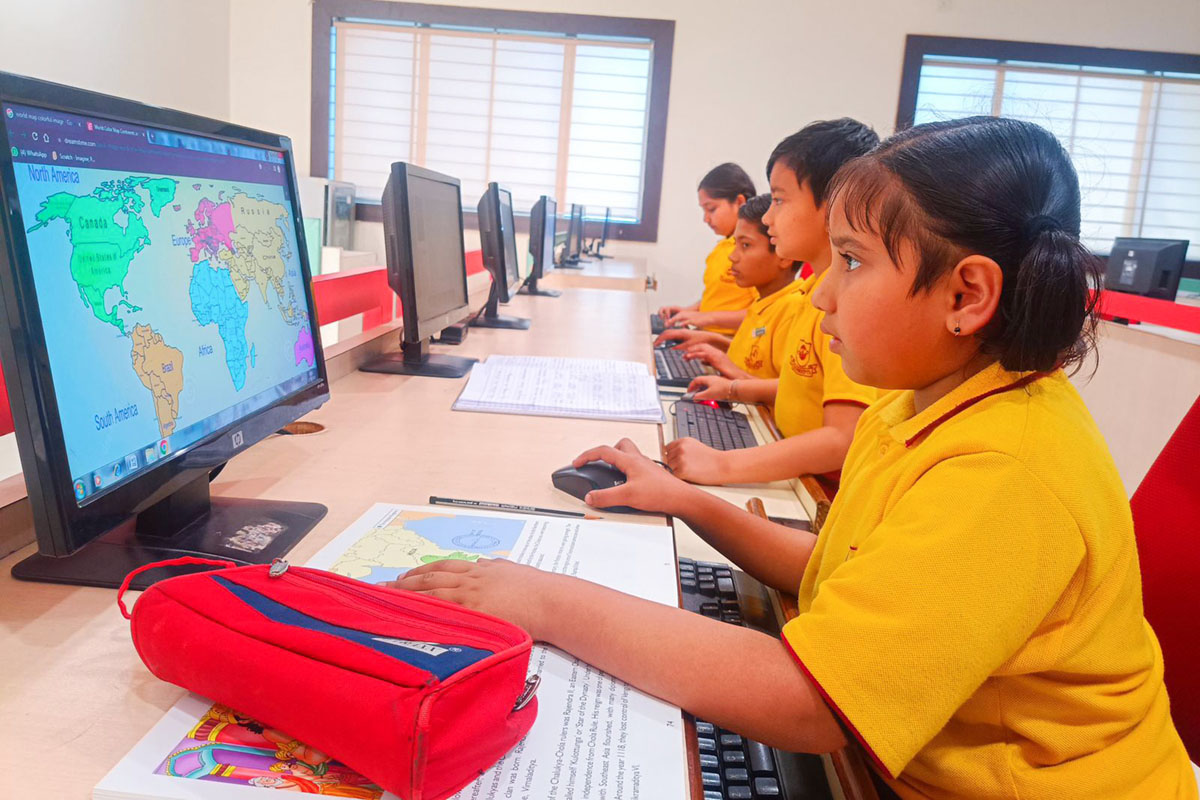Preparatory Stage (III to V)
At the Preparatory Stage (Classes I-V) a hands-on approach is practised which helps to develop a spirit of enquiry. Language and numeric skills are acquired through the teaching of specific subjects such as English, Hindi, Mathematics, General Science, General Studies (History and Geography) and Environmental Studies. Music, Physical Education and Art are all interwoven into the curriculum.
TIS also offers a myriad selection of co-curricular activities that are designed to help children discover their interests and talents. An inclusive curriculum addresses the needs of different kinds of learners. The teachers aim to build an interactive ambience where children may freely express their own opinions.
Technology is used to make lessons, effective and enjoyable through Smart boards, PPTs and videos. An innovative, child- friendly method of teaching is followed with special attention on individual potential. Apart from leading the students successfully on the path of academic excellence, the main aim is to help and guide the students to become well- rounded individuals and provide them the opportunity to blossom and realize their potential.

Learner – Centric approach is a vital component of all programs and all our programs are created keeping students’ interests in mind.